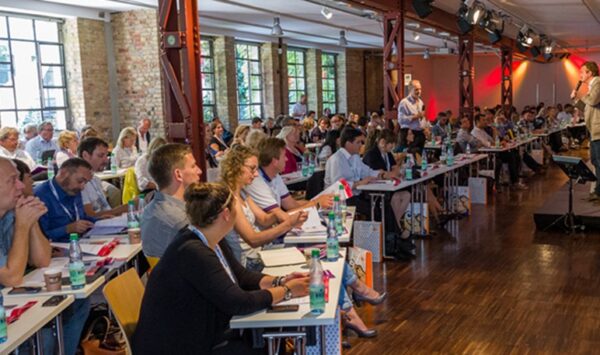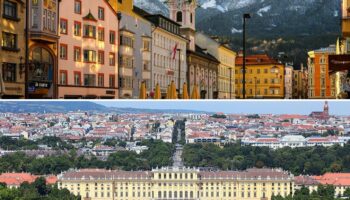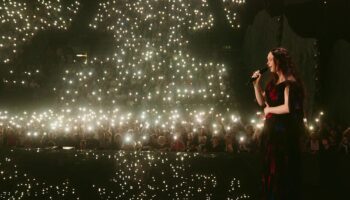The fourth annual workshop solely devoted to the Eurovision Song Contest has taken place in Berlin, Germany.
The workshop marks the beginning of the new Eurovision season, where broadcasters from across the continent will focus their attention on the next Eurovision Song Contest which will be held in Kyiv, Ukraine, in May 2017. It is an event organised by the EBU as an opportunity for EBU members to share knowledge, ideas and critique as to how best to arrange every aspect of the Eurovision Song Contest.
42 contributors from 28 EBU member broadcasters across 20 nations attended the workshop this year. Throughout the day, the participants of the workshop listened to an assortment of guest speakers, including NTU, the Ukrainian national broadcaster who are the current host broadcaster of the Eurovision Song Contest. Victoria Romanova, NTU’s Deputy Director General spoke of her time in Stockholm when Ukraine were gifted their second victory.
It was my tenth year in the Green Room as Head of Delegation for Ukraine. We didn’t discuss winning prior to the contest. In fact, the next day Jamala’s sister, who was sitting with us during the voting, asked if it really happened. For Jamala it was the culmination of all her work, but for NTU, winning the Eurovision Song Contest was only the beginning.
The attendees were also given an exclusive insight into the host city bidding process, which determined the Ukrainian city to host the 2017 contest. This was a particularly long and drawn out battle, with Kyiv eventually emerging as the victorious city. Jon Ola Sand, the executive supervisor of the Eurovision Song Contest extrapolated on the benefits of hosting Eurovision for a city:
The city really needs to be behind any bid to host the competition. From security, to transportation and other logistics, the city is crucial when producing an event such as the Eurovision Song Contest. For the city there are major benefits, not least the level of press coverage that is generated from hosting an event such as this. That’s why cities are fighting for the right to host.
The workshop in Berlin also provided an opportunity for EBU members to meet with the new event supervisor of the Eurovision Song Contest, Nadja Burkhardt, who took over the role at the beginning of Summer this year. Nadja, a Swiss national, is a long-standing member of the EBU team and attended her first contest five years ago in 2011. She spoke about the preparations being made for the upcoming Eurovision Song Contest in Ukraine.
The city bid process gave each potential host city the opportunity to showcase itself. There was an amazing level of motivation amongst all the teams in Ukraine.
Other speakers who gave talks at the workshop included the Australian head of delegation, Paul Clark. He shared his experiences of the 2016 contest and talked about how excited people from his country were during their participation. He also gave listeners an update on the new song contest format which is being developed in Asia.
Edoardo Grassi, the head of delegation from France, explained in depth the selection process that the channel France2 went through in 2016, which resulted with their competitor, Amir, achieving France’s best result since 2002.
In the morning of the workshop the governing body of the Eurovision Song Contest, the Eurovision Song Contest Reference Group, met to discuss to further discuss plans for the 62nd edition of the contest, which will be held in Kyiv, Ukraine.




